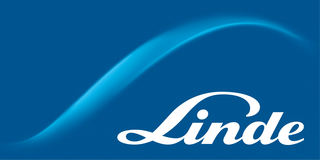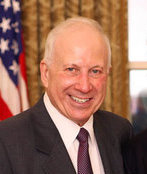
Mergers and acquisitions (M&A) are business transactions in which the ownership of companies, business organizations, or their operating units are transferred to or consolidated with another company or business organization. As an aspect of strategic management, M&A can allow enterprises to grow or downsize, and change the nature of their business or competitive position.
In business, a takeover is the purchase of one company by another. In the UK, the term refers to the acquisition of a public company whose shares are listed on a stock exchange, in contrast to the acquisition of a private company.
In business, a corporate raid is the process of buying a large stake in a corporation and then using shareholder voting rights to require the company to undertake novel measures designed to increase the share value, generally in opposition to the desires and practices of the corporation's current management. The measures might include replacing top executives, downsizing operations, or liquidating the company.
A golden parachute is an agreement between a company and an employee specifying that the employee will receive certain significant benefits if employment is terminated. These may include severance pay, cash bonuses, stock options, or other benefits. Most definitions specify the employment termination is as a result of a merger or takeover, also known as "change-in-control benefits", but more recently the term has been used to describe perceived excessive CEO severance packages unrelated to change in ownership.

The National Bank of Detroit (NBD), later renamed NBD Bank, was a bank that operated mostly in the Midwestern United States. Following its merger with First National Bank of Chicago, the bank was ultimately acquired and merged into Bank One, at which point the NBD name was discontinued. Today, what was once NBD is owned by JPMorgan Chase & Co.

Linde plc is a global multinational chemical company founded in Germany and, since 2018, domiciled in Ireland and headquartered in the United Kingdom. Linde is the world's largest industrial gas company by market share and revenue. It serves customers in the healthcare, petroleum refining, manufacturing, food, beverage carbonation, fiber-optics, steel making, aerospace, material handling equipment (MHE), chemicals, electronics and water treatment industries. The company's primary business is the manufacturing and distribution of atmospheric gases, including oxygen, nitrogen, argon, rare gases, and process gases, including carbon dioxide, helium, hydrogen, ammonia, electronic gases, specialty gases, and acetylene.

First Union Corporation was a bank holding company that provided commercial and retail banking services in eleven states in the eastern U.S. First Union also provided various other financial services, including mortgage banking, credit card, investment banking, investment advisory, home equity lending, asset-based lending, leasing, insurance, international and securities brokerage services and private equity through First Union Capital Partners, and through other subsidiaries.

A custodian bank, or simply custodian, is a specialized financial institution responsible for providing securities services. It provides post-trade services and solutions for asset owners, asset managers, banks and broker-dealers. It is not engaged in "traditional" commercial or consumer/retail banking like lending.

Tomkins plc was a multinational engineering company headquartered in London, United Kingdom. In July 2010 Tomkins was acquired by a Canadian consortium of private equity firm Onex Corporation and the Canada Pension Plan Investment Board. In July 2014, The Blackstone Group, the world's largest buyout firm, agreed to acquire The Gates Corporation, the largest division of Tomkins plc from Onex Corp. (OCX) and Canada Pension Plan Investment Board for $5.4 billion.
S. G. Warburg & Co. was a London-based investment bank. It was listed on the London Stock Exchange and was once a constituent of the FTSE 100 Index. The firm was acquired by the Swiss Bank Corporation in 1995 and ultimately became a part of UBS.
Firstar Corporation was a Milwaukee, Wisconsin-based regional bank holding company that existed from 1853 to 2001. In 2001, Firstar acquired U.S. Bancorp and assumed its name, moving its headquarters to Minneapolis.

Samuel J. Heyman was an American businessman and hedge fund manager best known for his longtime chairmanship of the GAF Materials Corporation and International Specialty Products Inc. (ISP).

Viterra Limited is a Canadian grain handling business, that began as the nation's largest grain handler, with its historic formative roots in prairie grain-handling cooperatives, among them the iconic Saskatchewan Wheat Pool. Viterra Inc grew into a global agri-business with operations in Canada, the United States, Australia, New Zealand and China. Viterra operated three distinct, inter-related businesses: Grain Handling & Marketing, Agri-Products and Processing, enabling it to generate earnings at various points on the food production chain from field to the table. Following its $6.1-billion acquisition by Glencore International, on 1 January 2013, Viterra was merged with Glencore purchaser, 8115222 Canada Inc., headquartered in Rotterdam, the Netherlands.
The Canada Pension Plan Investment Board, operating as CPP Investments, is a Canadian Crown corporation established by way of the 1997 Canada Pension Plan Investment Board Act to oversee and invest the funds contributed to and held by the Canada Pension Plan (CPP).

The history of private equity, venture capital, and the development of these asset classes has occurred through a series of boom-and-bust cycles since the middle of the 20th century. Within the broader private equity industry, two distinct sub-industries, leveraged buyouts and venture capital experienced growth along parallel, although interrelated tracks.

Private equity in the 1980s relates to one of the major periods in the history of private equity and venture capital. Within the broader private equity industry, two distinct sub-industries, leveraged buyouts and venture capital experienced growth along parallel although interrelated tracks.
The following is a glossary which defines terms used in mergers, acquisitions, and takeovers of companies, whether private or public.

Dematic is an American supplier of materials handling systems, software and services. With a growth rate of 21.2% in 2021 Dematic was listed as the world's second-largest materials handling systems supplier with a revenue of 3.2 billion USD. The company employs over 10,000 people and has engineering centres and manufacturing facilities in the United States, Germany, United Kingdom, Mexico, Australia, Belgium, China, Italy, Spain, France, Lithuania and Czech Republic. Its customer base includes small, medium and large companies in several other countries across six continents.
Lincare Holdings Inc. (Lincare) is a wholly owned subsidiary of Linde PLC, headquartered in Clearwater, Florida. Lincare is leading the respiratory homecare industry by serving approximately 1.8 million patients nationwide Lincare operates from over 700 locations in 49 states across the United States and employs 11,000 people, including 1,300 licensed clinicians. Products and services provided by Lincare include, but are not limited to, oxygen, nebulizers, sleep apnea products, home INR testing, ventilator products, enteral therapy, and homecare respiratory therapy services. Additional products provided by Lincare are durable medical equipment, including wheelchairs, walkers, and hospital beds.

American Fletcher National Bank was an Indianapolis-based bank founded in 1839 that was eventually absorbed by Bank One and later Chase Bank. Since the merger of the Fletcher Trust Company with the American National Bank to form the American Fletcher National Bank and Trust Company at the end of 1954, it had been the largest or the second largest bank in the state of Indiana, often changing places with its Indianapolis-based rival Indiana National Bank for the top spot. From the mid-1950s through the late-1980s, American Fletcher National Bank and Trust, along with Indiana National Bank and Merchants National Bank, was one of the top three largest banks within Indianapolis and its holding company, American Fletcher Corporation, was one of the top three largest bank holding companies within the state, along with INB Financial Corporation and Merchants National Corporation.










